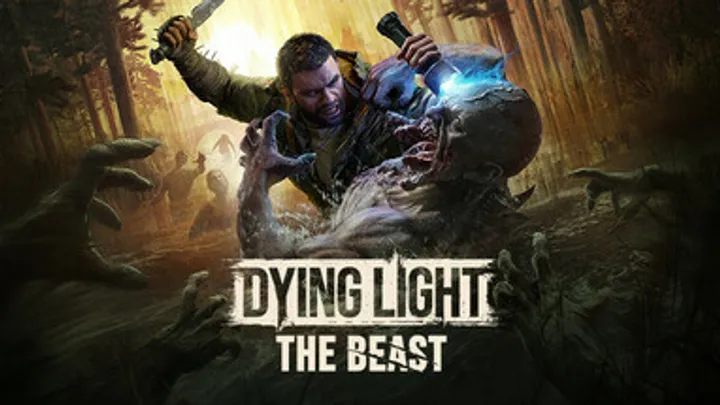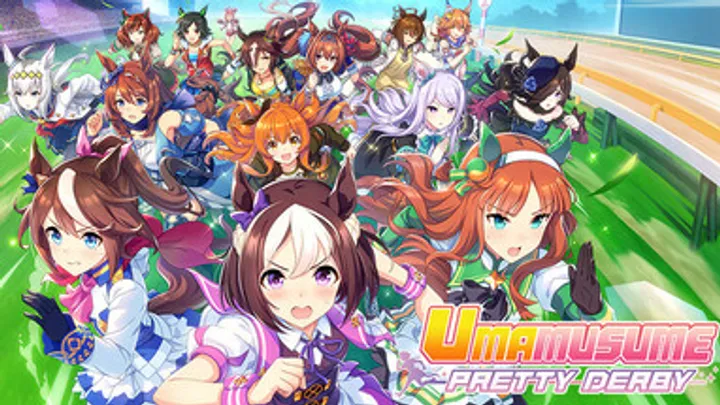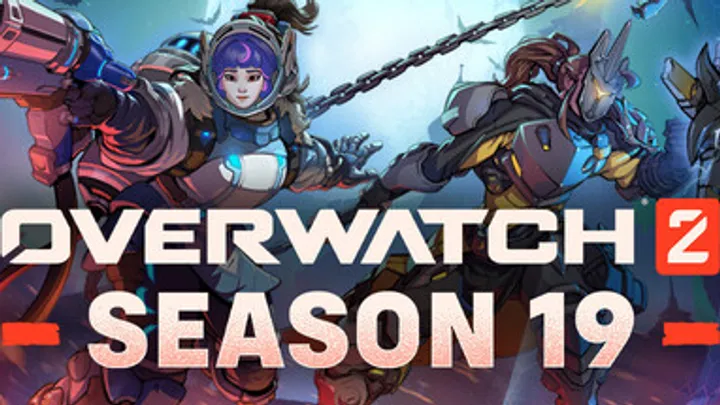When Umamusume: Pretty Derby was first announced, it raised eyebrows for its strange premise: anthropomorphized racehorses — inspired by real-world Japanese Thoroughbreds — reborn as anime girls who compete in idol-style races and concerts. On the surface, it seemed like another “cute girl” gacha game, combining athletics with performance. But beneath the bright colors and idol cheers lies one of the most complex identity conflicts in modern gaming:
What happens when real history, corporate branding, and fictional reimagining collide?
This article explores a single deep issue — the identity and ethical conflict at the heart of Umamusume’s concept. How does a game simultaneously honor, commodify, and fictionalize real racing legends? How do players emotionally reconcile idolization with realism? Through its narrative design, community culture, and Japan’s racing heritage, Umamusume reveals a fascinating tension between homage and exploitation.
1. The Birth of a Hybrid Concept
To understand Umamusume’s identity crisis, we start with its origins.
Developed by Cygames and released in 2021, the project sought to merge two of Japan’s most commercially successful genres: idol simulation and sports racing. Yet it took years to reach release due to licensing, sensitivity around real horse names, and the cultural weight of Japan’s racing industry.
H3: The Initial Challenge
The game faced a fundamental dilemma:
- Real Thoroughbred names are sacred within Japan’s equestrian circles.
- Turning them into anime characters risked offending racing purists.
- Balancing authenticity and fantasy required unprecedented sensitivity.
Despite early controversy, Umamusume ultimately positioned itself not as parody, but as tribute — a world where “horse girls” honor the legacy of real champions.
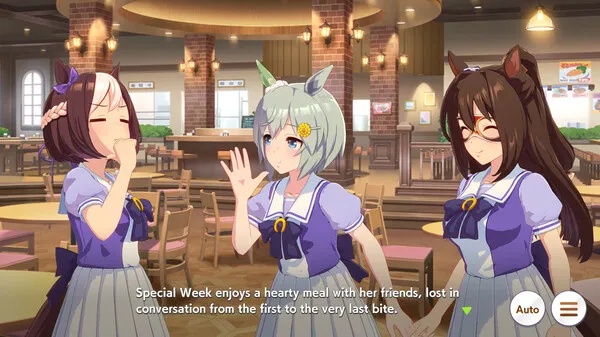
2. Real Horses, Real Legacies
The brilliance — and controversy — of Umamusume comes from its use of real historical references.
Characters like Special Week, Silence Suzuka, and Tokai Teio are not original inventions; they are reincarnations of real racehorses, often complete with mirrored story arcs and race outcomes.
H4: Real-World Reflections
- Special Week’s tragic trainer loss mirrors the real horse’s career struggles.
- Silence Suzuka’s in-game arc rewrites tragedy with emotional closure.
- Tokai Teio’s injuries and comebacks remain faithful to racing records.
This intertwining of fact and fantasy brings emotional depth — but also ethical complexity.
3. The Ethical Line Between Tribute and Exploitation
At what point does homage turn into exploitation?
Players are emotionally invested in these characters, yet each one is based on a living or deceased animal owned by real entities. Some owners and racing families have refused permission for likeness use, leading to missing characters and gaps in the in-game “roster.”
- Cygames must constantly negotiate permissions.
- Some families reject adaptation out of respect for the horse’s dignity.
- This has fueled community debate: is Umamusume preserving or profiting from racing history?
The game’s continued updates show it’s walking a cultural tightrope — one between affection and appropriation.
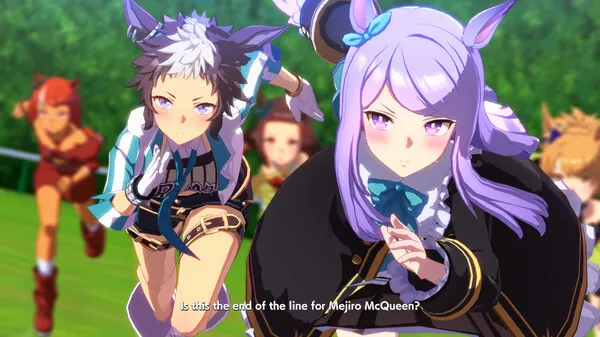
4. Narrative as Rehabilitation
Where the game truly shines is in reframing historical loss into emotional healing.
In real racing history, many famous horses met tragic ends — injuries, euthanasia, or early retirement. Umamusume rewrites these narratives as stories of resilience, hope, and friendship.
- Silence Suzuka, who died in a real-world race accident, is given a peaceful “second life.”
- Players help her achieve the “dream race” she never completed.
- It transforms grief into catharsis, letting fans emotionally rewrite history.
This is where Umamusume transcends parody: it turns collective mourning into collective healing.
5. The Idol Paradox
Yet the juxtaposition of athleticism and idol culture remains controversial.
Why must the reincarnations of racehorses perform idol concerts after races? Why not simply celebrate their athletic excellence? The answer lies in Japan’s media ecosystem — where idolization equals emotional intimacy.
H3: The Idol Formula
- Performance: Races end with concerts symbolizing triumph.
- Connection: Players “train” their favorite horse girls like producers.
- Commercialization: Merchandise and music extend emotional ownership.
This idol framing deepens fan engagement, but also commodifies legacy in ways that feel uncomfortable to some.
6. Player Relationship and Emotional Projection
Players’ bonds with characters are unusually strong because Umamusume intertwines nostalgia, heroism, and care.
- Older fans relive the glory days of Japanese racing.
- New players form emotional attachments through storylines, not horse stats.
- The “raising simulation” format turns trainer–trainee bonds into surrogate relationships.
But this emotional projection blurs boundaries — fans treat fictional idols with reverence once reserved for real athletes. The parasocial ecosystem extends beyond the game into concerts, anime, and real racing events.
7. The Linguistic Layer: Respect Through Language
In Japanese, “Umamusume” (ウマ娘) literally means “horse daughters.” The language choice itself reinforces a family-like tone, positioning the characters as successors or spiritual children rather than direct replicas.
H4: Semantic Implications
- “Musume” softens the concept; they are not literal reincarnations, but tributes.
- This linguistic distancing allows respect and affection to coexist.
- The naming system (keeping original racehorse names) ensures history remains visible.
Language thus becomes a cultural buffer — a way to manage reverence while embracing fantasy.
8. Fan Culture and Community Reverence
The fanbase has become a living archive of racing history.
- Forums document each real horse’s biography.
- Artists blend factual events with emotional fan art.
- Players visit racetracks and memorials, bringing offerings to graves.
What started as fandom evolved into a ritual of remembrance — a form of digital ancestor worship for horses. The line between play and reverence grows ever thinner.
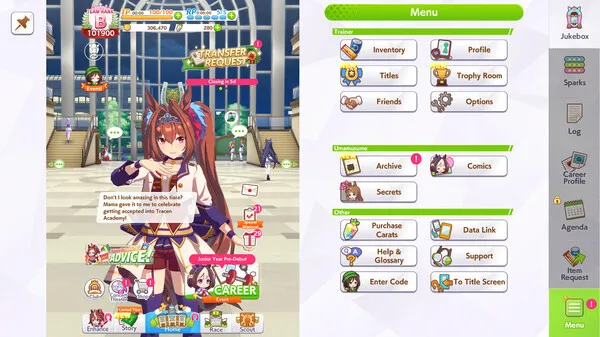
9. Commercialization and the Risk of Dilution
With Umamusume’s explosive success, Cygames faces a new challenge: commercialization risks diluting the sincerity that defined the project.
- Collaborations, cosmetics, and endless merchandise risk turning legacy into product.
- Narrative arcs may become formulaic to sustain monetization cycles.
- The deeper cultural reverence could erode under corporate repetition.
This tension mirrors the idol industry itself — the constant push-pull between emotional authenticity and financial machinery.
10. The Future of Legacy in Digital Form
Umamusume has inadvertently pioneered a new kind of legacy preservation.
Future generations may know these racehorses not from historical records, but through their anime counterparts. This is both a triumph and a warning: when history becomes entertainment, truth reshapes into narrative.
The game’s approach raises enduring questions:
- Who owns memory in the digital age?
- Can tribute remain pure once profit enters the equation?
- How will history remember the real Special Week — the horse or the girl?
As Umamusume expands into global markets, its identity conflict will only deepen.
Conclusion
Umamusume: Pretty Derby is far more than a gacha game about cute girls running races. It is a cultural artifact that embodies Japan’s evolving relationship with memory, identity, and commercial storytelling. By turning racehorses into idols, it reimagines history through empathy, but also through consumption.
Its fictional world gives second life to heroes long gone, but it also raises uncomfortable questions about ownership and reverence. In transforming grief into celebration, Umamusume succeeds as emotional fiction — yet its legacy will depend on whether it continues to honor the very beings that inspired it.
In the end, Umamusume is not about horses or idols. It is about how we choose to remember — and who gets to define what remembrance looks like.












